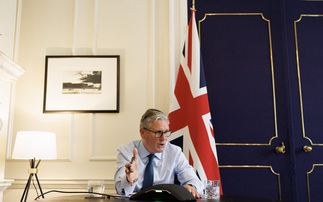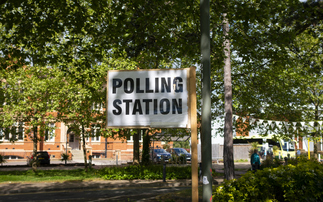From rich and poor countries fighting to the question of climate finance BusinessGreen outlines the key stumbling blocks to success at COP21
For those attending the Paris climate change talks there are a few "c" words best avoided. The term "compensation" is bound to provoke a row and it is best to try not to bring up Copenhagen.
There is no question that momentum towards COP21 has been gathering pace, with nearly 180 countries having submitted national plans outlining how they plan to adapt to climate change, reduce greenhouse gases, and scale up investments in low carbon energy sources over the next 10 to 15 years.
Christiana Figueres, the head of the United Nations Climate Change Secretariat, has been relentlessly positive over the prospects of a deal, while Prime Minister David Cameron this week underlined that it was "vital" the world signs a global agreement.
But the fate of the climate summit is not sealed and many of the old fault lines are still as present as ever, with rich and poor countries still divided over who should bear the brunt of the promised emission cuts and questions remaining over the legal nature of the deal. As a result, very real fears remain that the Paris talks could result in a "zombie deal".
BusinessGreen takes a look at the top five hurdles that diplomats will need to clear if they are to get to the finishing line with an ambitious treaty intact.
Rich vs poor
How to share the burden between countries for reducing greenhouse gas emissions is one of the most pressing questions for a Paris deal and one that is likely to remain unresolved until the final moments of the talks.
How much more effort should rich countries put in compared to poor countries given that they have already reaped the benefits of an industrial revolution driven by polluting fossil fuels? And how to factor in the expected huge growth of economies such as China, Brazil and India?
The Lima Summit last year ended with a call for a deal that reflects the principle of "common but differentiated responsibilities and respective capabilities" of each nation "in light of different national circumstances". But delivering an agreement along these lines will prove as challenging as ever.
UK government sources predict the overarching political drive for a deal will force countries to budge in the end. "A lot of people sense there's going to have to be movement", said a source. "Most countries are open to do a deal, but quite what that deal looks like and its effect on the provisions of the agreement is very difficult to tell."
Show me the money
A large number of developing countries' climate action plans hinge on them receiving financial support from the international community. Rich countries have promised to mobilise $100bn of climate finance a year by 2020 to help poor and vulnerable countries, such as low lying islands, cope with the worst impacts of climate change.
But what happens after 2020 remains a crucial question. Politicians have already signalled that climate finance will not drop off a cliff at the turn of the decade, but poorer nations will want to see much more detailed long term funding commitments.
Questions also remain over whether there will be firm pledge from emerging economies about providing poorer countries with so-called "south-to-south" funding.
The Paris decision is expected to include a section on climate finance, setting up the mechanisms to deliver the finance, such as the Green Climate Fund and Least Developed Countries Fund. It will also seek to find alternative sources of funding and could create a roadmap towards a post-2020 funding environment.
The OECD estimates rich countries are already more than half way towards delivering their goal, with climate financing averaging at $57bn annually over the past two years. But questions remain over how we should be measuring progress against the $100bn target, and whether funding for coal plants should be counted as climate finance as Japan and Australia have suggested.
Meanwhile, Republican senators in the USA have threatened to block Obama's budget requests for the Green Climate Fund if the Senate is not given an opportunity to vote on any over-arching climate deal coming out of Paris.
Loss and damage
How to pay for the impacts that poor and vulnerable countries suffer from climate change, such as flooding, droughts, storms and hurricanes? It is one of the most contentious issues at the UN climate change.
This issue has come to the fore over the last few years, particulalry as the impact of climate change become ever more clear with extreme weather events such as Typhoon Haiyan expected to become more freqent and severe.
Vulnerable countries are understandably concerned that climate shocks could have major impacts on their economies while richer nations including the European Union and the US are anxious to highlight that any deal does not constitute rich nations agreeing to "compensation" payments. They are reluctant to become locked into a mechanism that could make them liable for the huge and rising costs incurred by poorer states.
Loss and damage is expected to be discussed at a ministerial level during the Paris summit. At recent technical negotiations the deadlock on the issue appeared to be easing with both sides apparently putting forward a vision of how loss and damage could fit into a global deal on climate change that could command wide support.
Specifically, countries will need to decide the future of the Warsaw Mechanism, set up in 2013 to deal with the question of loss and damage - should it be extended into a long-term feature of a climate deal or developed into a new approach to managing climate risks?
Stocktaking
It is widely accepted that all the current national pledges on the table will not deliver the carbon reductions needed to stop global warming from exceeding two degrees. So the Paris deal will need to include some form of mechanism to ensure countries ratchet up their ambition over the coming years.
When and how that is to be done has yet to be decided, but many parties including the EU are calling for five-yearly reviews to examine the progress countries are making towards 2C. However, as is often the case with issues relating to measurement, reporting and verification, the proposals for a review mechanism are facing opposition from some developing economies who fear it could act as a fore-runner for more ambitious emissions targets than they are comfortable with.
Long-term goal
Hopes remain that Paris could also deliver a longer-term emissions goal that goes beyond the pledges on the table, past 2030.
Such a long term goal could take the form of a pledge to phase out fossil fuels by a set date later in the century. The Track Zero campaign encourages countries to completely decarbonise their economies by 2050, which is the target many scientists say will be required for industrialised nations if the world is to keep global temperature rises below two degrees celcius by the end of the decade.
However, the G7 leaders recently signalled their support for a vaguer target based on net zero emissions at some point during the second half of the century. But even this could be too rich for some fossil fuel exporters who are reluctant to sign up to a target that could see their industries consigned to history within one generation.
This article is part of BusinessGreen's Road to Paris hub, hosted in association with PwC.










